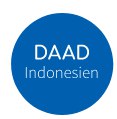ENHANCING GERMAN LANGUAGE LEARNING IN MALAYSIA: CHALLENGES AND OPPORTUNITIES IN ADOPTING THE DISCURSIVE APPROACH
Abstract
This study aims to explore the general situation of German language education in Malaysia, focusing on the growing interest in learning the language and the challenges faced in its instruction. The research utilizes a descriptive qualitative methodology, gathering data through literature review and Focus Group Discussions (FGD). Findings indicate that the interest in learning German has significantly increased in recent years, driven by academic, professional, and personal motivations. However, the study identifies several challenges, including limited resources such as textbooks, teaching materials, and online content in German, as well as varying teaching quality across institutions. Additionally, the partnership between Universitas Negeri Malang (UM) and Study Germany, a Malaysian educational consultancy, is highlighted as a case study, revealing issues in teaching Landeskunde (cultural studies) due to resource limitations, insufficient teacher knowledge, and cultural differences between Germany and Malaysia. The study suggests that improving resource availability, teacher training, and curriculum development are essential steps to enhance the quality of German language education in Malaysia. Moreover, the integration of a discursive approach in teaching Landeskunde is recommended to provide deeper cultural insights and address the challenges identified.
Keywords
Full Text:
PDFReferences
Altmayer, C. (2006): Landeskunde als Kulturwissenschaft. Ein Forschungsprogramm. Jahrbuch DaF, 32, pp. 181-199.
Altmayer, C., Hamann, E., Magosch, C., Mempel, C., Vondran, B., Zabel, R. (eds.) (2015): Empirische Forschung in Landeskunde. Stuttgart: Ernst Klett Sprachen GmbH.
Altmayer, C., Hamann, E., Magosch, C., Mempel, C., Vondran, B., & Zabel, R. (2016). Mitreden: Diskursive Landeskunde für Deutsch als Fremd- und Zweitsprache (1. Auflage.). Stuttgart: Ernst Klett Sprachen.
Bettermann, R. (2010): Landeskunde. In: Barkowski, H., Krumm, H.-J.: Fachlexikon Deutsch als Fremd und Zweitsprache. Tübingen, Basel: A. Francke Verlag, 180.
Biechele, M., Meinert, R. (2001): Handbuch zur Spracharbeit (Goethe-Institut). Teil 5: Erlebte Landeskunde. Ismaning: Hueber.
Büchsel, A. (2018). Vielfalt LEBEN. Deutsch als Zweitsprache. München: Hueber.
Byram, M., Fleming, M. (eds.) (1998): Language Learning in Intercultural Perspective: Approaches Through Drama and Ethnography. Cambridge, New York: Cambridge University Press.
Byram, M., & Wagner, M. (2018). Making a difference: Language teaching for intercultural and international dialogue. Foreign Language Annals, 51(1), pp. 140-151.
Ciepielewska-Kaczmarek, L., Jentges, S., Tammenga-Helmantel, M. (2020): Landeskunde im Kontext: Die Umsetzung von theoretischen Landeskundeansätzen in DaF-Lehrwerken. Vandenhoeck & Ruprecht.
Day, C. (1999) Developing Teachers: The Challenges of Lifelong Learning. London: Falmer Press.
Fornoff, R., & Schaller-Fornoff, B. (2024). Update Landeskunde. Ein Workshop-Format zur Fortbildung von DaF-Lehrkräften in Tiflis. Zeitschrift für Interkulturellen Fremdsprachenunterricht, 29(1).
Göbel, K. (2019). Interkulturelles Lernen im Fremdsprachenunterricht. In: K. Beuter, A. Hlukhovych & B. Bauer u. a. (Eds.), Sprache und kulturelle Bildung. Perspektiven für eine reflexive Lehrerinnen- und Lehrerbildung und einen heterogenitätssensiblen Unterricht (pp. 51–78). Bamberg: University of Bamberg Press.
Hägi-Mead, S. (2017). Umparken im Kopf – Konstruktive Überlegungen zu Tabus und heiklen Themen in Lehrwerken und Unterrichtsmaterialien. In: P. Haase & M. Höller (Eds.), Kulturelles Lernen im DaF/DaZ-Unterricht. Paradigmenwechsel in der Landeskunde (pp. 209–236). Göttingen: Universitätsverlag.
Immers, S. (2020): Kulturreflexives Lernen im Schüleraustausch: Die Möglichkeiten von kulturreflexivem Lernen im Schüleraustausch durch den Einsatzvon Portfolios am Beispiel des Projekts ‚Nachbarsprache & buurcultuur‘ und des ‚eMMA-Portfolios‘. Universiteit van Utrecht: Masterscriptie.
Jentges, S. (2023). Kulturreflexives Lernen in der Praxis. Deutsch als Fremdsprache in den Niederlanden. In: Hille, A., & Schiedermair, S. (Eds.) Zur Kategorie „Diskurs “in der Kultur-und Literaturdidaktik des Faches Deutsch als Fremd-und Zweitsprache, pp. 81-102.
Kamberelis, G., & Dimitriadis, G. (2011). Contingent articulations of pedagogy, politics, and inquiry. In N. K. Denzin & Y. S. Lincoln (Eds.), The SAGE handbook of qualitative research (4th ed., pp. 545-561). Thousand Oaks, CA: Sage.
Koreik, U. & Fornoff, R. (2020). Landeskunde/Kulturstudien und kulturelles Lernen im Fach DaF/DaZ – Eine Bestandsaufnahme und kritische Positionierung. Zeitschrift für Interkulturellen Fremdsprachenunterricht 25(1), pp. 563–648.
Krumm, H.-J. (2021). Sprachenpolitik Deutsch als Fremd- und Zweitsprache. Eine Einführung. Berlin: Erich Schmidt.
Lee, J. Z. (2021). Lehrkräftebildung im Fach Deutsch als Fremdsprache in Malaysia-Vergangenheit, Gegenwart und Zukunftsprognosen (Doctoral dissertation).
Maijala, Minna (2008): Zwischen den Welten–Reflexionen zu interkulturellen Aspekten im DaF-Unterricht und in DaF-Lehrwerken. Zeitschrift für interkulturellen Fremdsprachenunterricht, 13(1).
Olshtain, E., & Celce‐Murcia, M. (2005). Discourse analysis and language teaching. The handbook of discourse analysis, pp. 707-724.
Rodriguez, K. L., Schwartz, J. L., Lahman, M. K. E., & Geist, M. R. (2011). Culturally responsive focus groups: Reframing the research experience to focus on participants. International Journal of Qualitative Methods, 10(4), pp. 400-417.
Stewart, D., Shamdasani, N., & Rook, D. (2007) Focus Groups: heory and Practice. London: Sage.
Tomlinson, B. (Ed.). (2023). Developing materials for language teaching. Bloomsbury Publishing.
Zeuner, Ulrich (2001): Landeskunde und interkulturelles Lernen: eine Einführung. Dresden: Technische Universität.
Refbacks
- There are currently no refbacks.
Copyright (c) 2024 Iwa Sobara, Sri Prameswari Indriwardhani, Dudy Syafruddin

This work is licensed under a Creative Commons Attribution-ShareAlike 4.0 International License.
This journal provides immediate open access to its content on the principle that makes research freely available to the public and supports a greater global exchange of knowledge.
This work is licensed under a Creative Commons Attribution-ShareAlike 4.0 Internasional (CC BY-SA 4.0).




